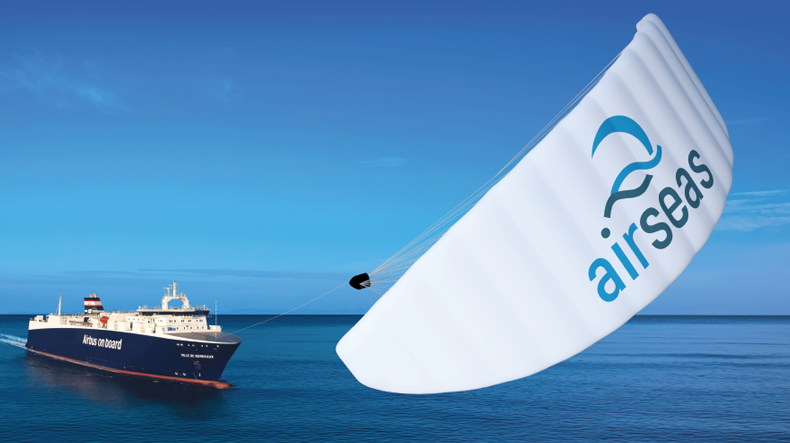From the News Desk: Will coronavirus accelerate the use of tech in shipping?
Remote inspections have already seen a strong rise in use, but port congestion shows people are vital on the ground
Adopting new working practices and initiatives, which could have taken years to implement under usual circumstances, could now become the norm much sooner for shipping
CLASS societies were undergoing a transformation even before the coronavirus outbreak struck.
But Matthieu de Tugny, president of Bureau Veritas’ Marine & Offshore division, believes the “collective approach” that can be used to overcome many of the challenges facing the shipping industry will be greatly enhanced by the coronavirus outbreak.
Speaking to Lloyd’s List, he outlined volatile markets, regulatory compliance, and technological change as the three biggest tests for the sector in the coming years and believes class societies will have an increasingly important role to play in delivering workable outcomes on all fronts.
In particular, the use of technological solutions for activities that would otherwise be done in person has rapidly accelerated since most countries introduced lockdown measures and they are more than likely here to stay.
Mr de Tugny cited an engine testing project, recently completed, involving BV staff in France, Germany and China — where the test took place. Such remote working is changing the perception that millions of air miles must be accrued every year for testing, inspection and certification to be carried out.
BV opened its first remote survey centre in Rotterdam last month. It will focus on supporting remote service delivery, with imagery and real-time video connecting ships with remotely located surveyors.
It shows, Mr de Tugny affirmed, that the ability to deliver class services without a surveyor being physically present is now a reality.
This scenario is playing out in India as well, where Indian Register of Shipping executive chairman Arun Sharma, who is also the chairman of the International Association of Classification Societies, said the country’s lockdown had significantly impacted shipping operations.
He said that one of the current challenges was the inability of surveyors to board ships due to travel restrictions, and this has had led IR class to increasingly offer remote inspections to continue servicing customers.
But the digital push as a result of this crisis is likely to extend further beyond remote inspections, according to Allcargo Logistics chairman and founder Shashi Kiran Shetty.
He told Lloyd’s List that optimising operations digitally and shifting to flexible and scalable business continuity and contingency plans was the best way ahead for stakeholders in the logistics industry in the near future, arguing that companies adopting this strategy would “emerge stronger” when the crisis abated.
Digital solutions that speed up bookings and manage cargo transportation in a more efficient way would help to keep businesses moving at this time and offer simplicity and convenience, Mr Shetty argued.
But even companies that have already widely adopted digital services and operations to enhance shipping processes still need manpower in key areas and this can be seen playing out at ports around the world.
In India, Mr Shetty said the lockdown is slowing deliveries with the logistics industry affected by a shortage of drivers to transport goods to ports. There is also the issue of moving cargo from terminals once it has arrived.
Last week, Maersk was among the companies taking steps to avoid congestion in the supply chain as cargoes reach their destinations despite a collapse in demand, with labour shortages one the main problems.
In a letter to customers, Maersk ocean and logistics chief executive Vincent Clerc called on them to minimise port stays and the detention of containers as much as possible, in order to reduce the risk of congestion and maintain the flow of goods.
“Ships are sailing, ports are functioning, intermodal transport is under way, however, we all also face disruptions outside our control, such as labour shortage due to quarantine measures which may at times lead to instances of congestion,” he said.
Decarbonising shipping
Meanwhile, we spoke to a company that will soon be unveiling a technology that could greatly reduce fuel use and lower CO2 emissions, thus potentially offering one of the solutions to another major challenge facing shipping.
Vincent Bernatets, the founder of Airseas, a company spun off from Airbus but independent of the aircraft manufacturer, said its Seawing — a parafoil kite attached to a ship by a cable that can expand to up to 500 metres — will be installed on the ro-ro vessel Ville de Bordeaux in November.
Just as important as the parafoil itself is the data analytics behind it that will not only calculate the best time to launch and retract the Seawing but also propose an optimised route that draws on wind conditions and sea state. That route would be the one that gets the ship to its destination at the contractual time using the minimum of fuel.
While not the solution to zero-carbon shipping, the algorithm utilised in this technology can minimise fuel consumption and cut CO2 and fuel use on Pacific Ocean routes by up to 20%, Airseas claims.
The issue of how shipping will meet the challenge of decarbonisation will be among the key talking points of the Lloyd’s List ‘Future Fuels’ webinar later this month.
While the long-term goals remain unchanged, some have argued that decarbonisation could now take a back seat in the short to medium term due to coronavirus as governments focus efforts on rebuilding their economies.
This has injected further uncertainty into the regulatory timelines and left owners wary of making any firm decisions. But progress cannot be paused completely. Strategies will have to adapt and decisions will have to be taken.
Previous assumptions regarding bridging technologies and fuel flexibility that would facilitate the transition from traditional fuels, may now need to be revisited as timelines extend.
To discuss these topics and more, Lloyd’s List has assembled a panel of experts including Christos Chryssakis, business development manager and maritime fuel expert at DNV GL — Maritime; Unni Einemo, director, International Bunker Industry Association; and Chris Chatterton, chief operating officer of the Methanol Institute.
Registration for this online event is free via this link, and is part of this month’s Singapore Focus series of digital events and coverage. You can find more on our special hub page here.


